
PUBLICATIONS CENTRE
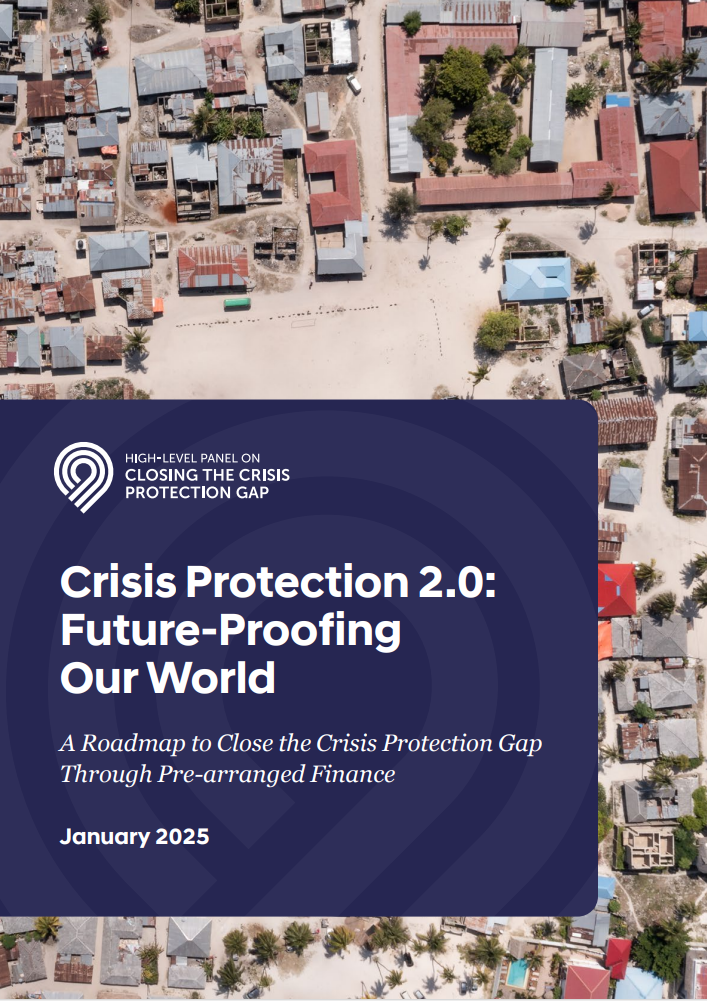
CRISIS PROTECTION 2.0: FUTURE-PROOFING OUR WORLD
The High-Level Panel on Closing the Crisis Protection Gap formed in January 2024, comprising 20 expert members from across sectors and geographies, united by the conviction that national and international crisis, climate and development financing architectures are at a critical juncture. This report delivers the High-Level Panel on Closing the Crisis Protection Gap’s call to action - that now is the time to comprehensively rethink how the world financially prepares itself for and responds to crises. The Crisis Protection 2.0 report outlines ten strategic recommendations and an ambitious roadmap for the next decade.
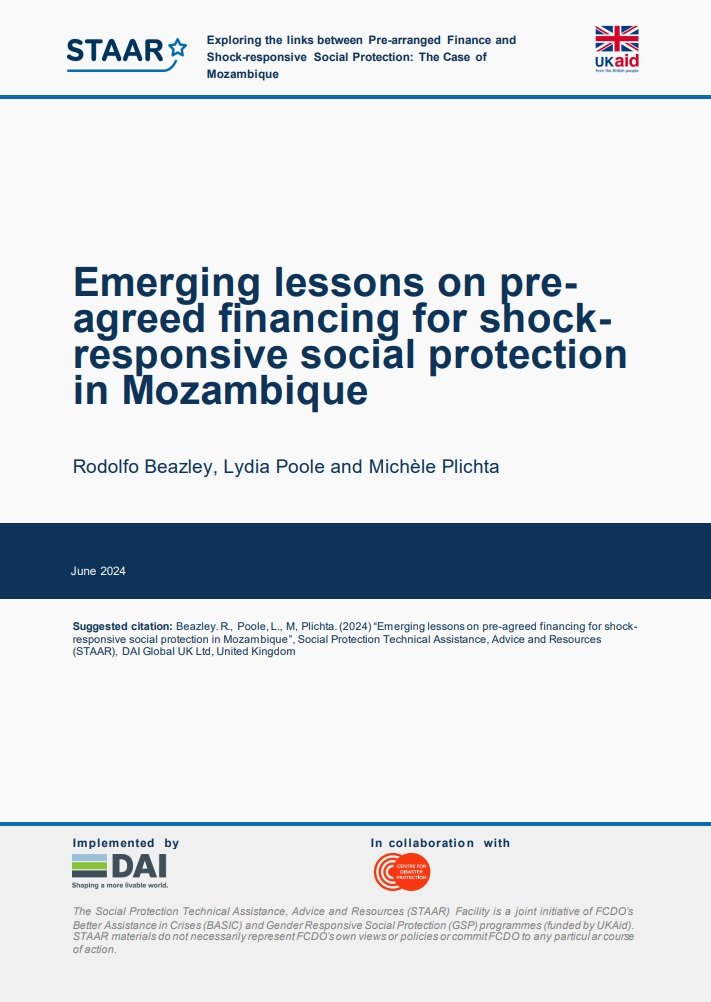
Emerging lessons on pre-agreed financing for shock-responsive social protection in Mozambique
This study, conducted by the Centre for Disaster Protection in collaboration with the Social Protection Technical Assistance, Advice, and Resources (STAAR) Facility, investigates the potential opportunities, benefits and risks when linking disaster risk financing (DRF) and shock-responsive social protection (SRSP) in Malawi. The report contributes to a broader study that includes research across three country case studies (Jamaica, Malawi, and Mozambique) to consider the opportunities, potential risks, and benefits of channelling disaster risk financing instruments through national social protection systems. The focus of this report is Mozambique.
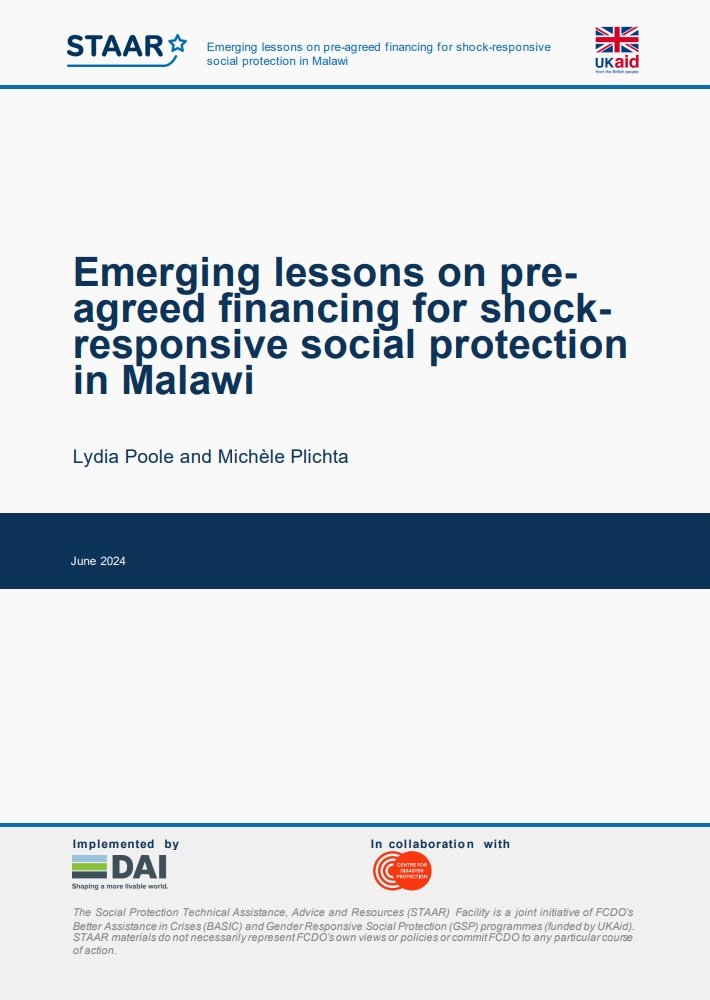
Emerging lessons on pre-agreed financing for shock-responsive social protection in Malawi
This study, conducted by the Centre for Disaster Protection in collaboration with the Social Protection Technical Assistance, Advice, and Resources (STAAR) Facility, investigates the potential opportunities, benefits and risks when linking disaster risk financing (DRF) and shock-responsive social protection (SRSP) in Malawi. The report contributes to a broader study that includes research across three country case studies (Jamaica, Malawi, and Mozambique) to consider the opportunities, potential risks, and benefits of channelling disaster risk financing instruments through national social protection systems. The focus of this report is Malawi.
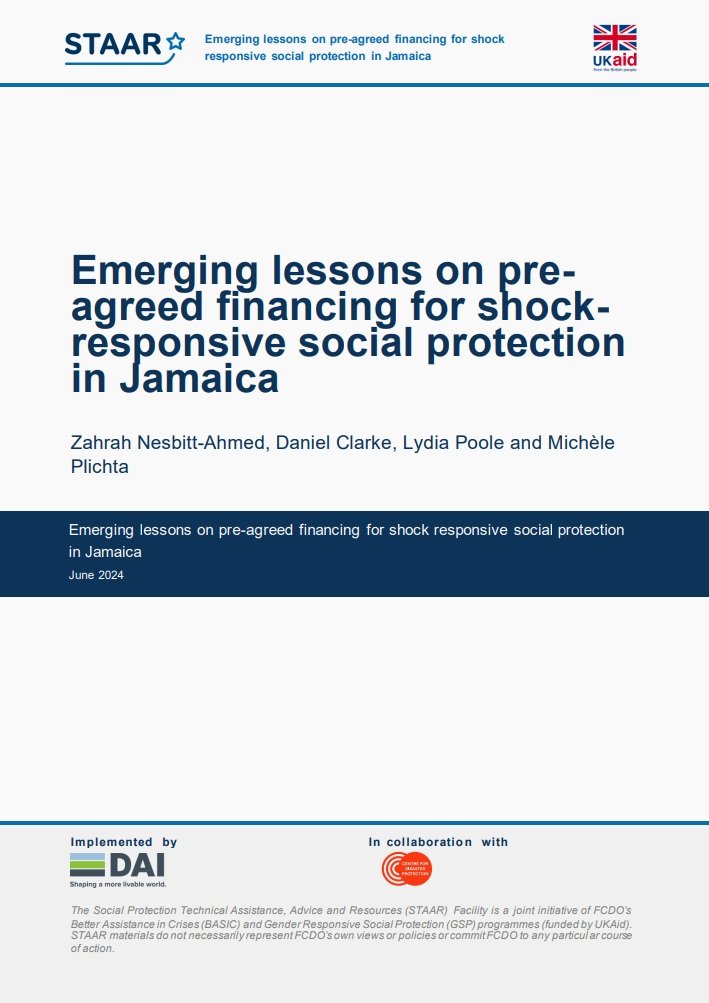
Emerging lessons on pre-agreed financing for shock-responsive social protection in Jamaica
This study, conducted by the Centre for Disaster Protection (hereafter, the Centre) in collaboration with the Social Protection Technical Assistance, Advice, and Resources (STAAR) Facility, investigates the potential opportunities, benefits and risks when linking disaster risk financing (DRF) and shock-responsive social protection (SRSP). The report contributes to a broader study that includes research across three country case studies (Jamaica, Malawi, and Mozambique) to consider the opportunities, potential risks, and benefits of channelling disaster risk financing instruments through national social protection systems. The focus of this report is Jamaica.
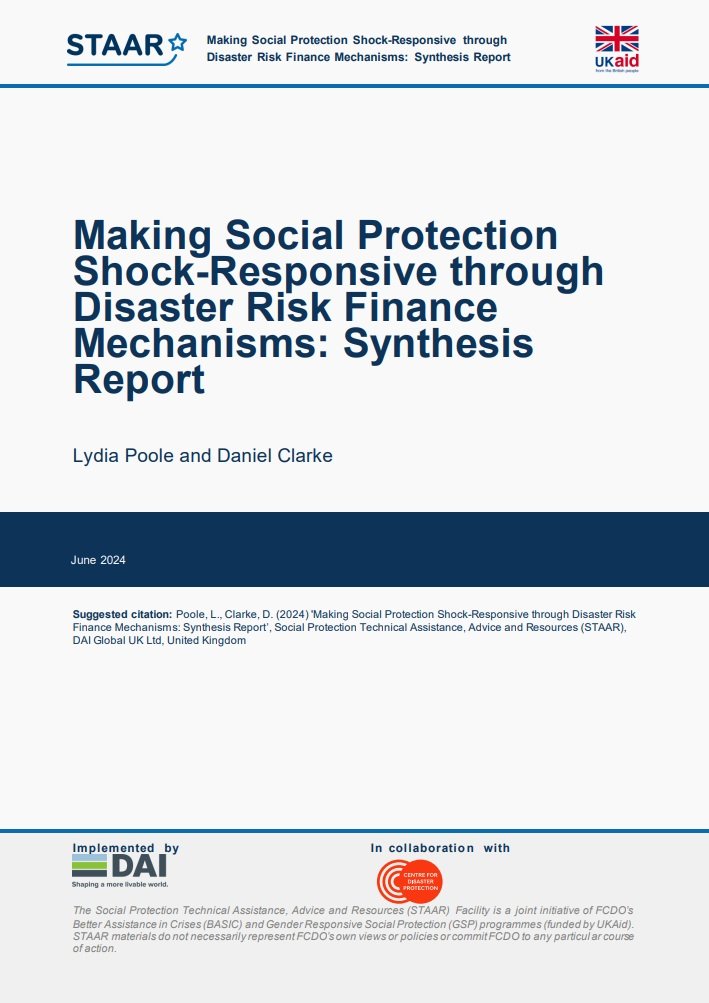
Making Social Protection Shock-Responsive through Disaster Risk Finance Mechanisms: Synthesis Report
This study, conducted in collaboration with the Social Protection Technical Assistance, Advice, and Resources (STAAR) Facility, addresses gaps in evidence on the potential to integrate disaster risk finance (DRF) and social protection systems. The research includes three case studies – Jamaica, Malawi and Mozambique. The study puts forward six lessons and 12 recommendations for donors interested in supporting this agenda.

DEMYSTIFYING PRE-ARRANGED FINANCING FOR GOVERNMENTS: A STOCKTAKE OF FINANCIAL INSTRUMENTS FROM INTERNATIONAL FINANCIAL INSTITUTIONS
As the toolkit for pre-arranged financing expands, it is becoming increasingly challenging for governments to determine which instrument, or combination of instruments, best meets their needs. There is no silver bullet or single ‘best’ PAF instrument. To help governments and international partners better prepare for disasters, this report offers an in-depth assessment of pre-arranged financing tools using seven key criteria for ensuring pre-arranged financing reduces the human and financial costs of disasters.
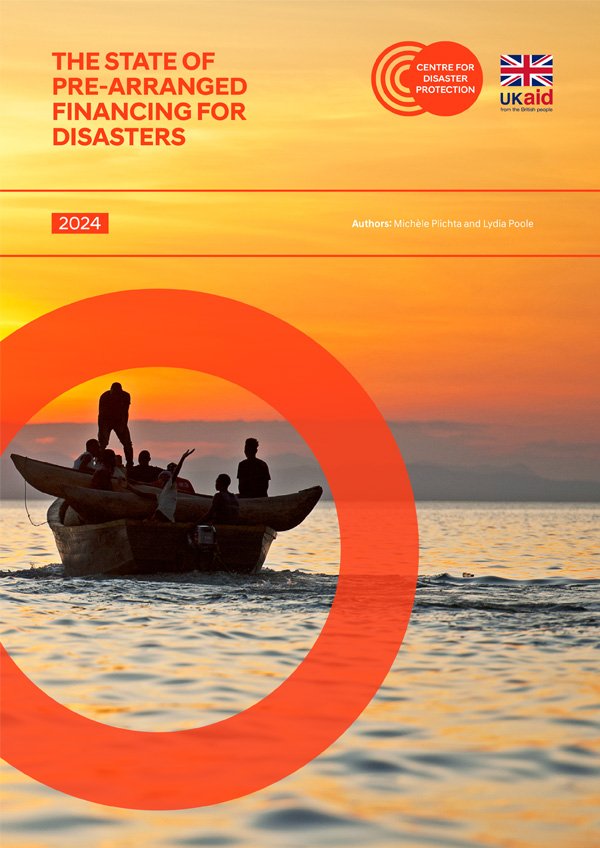
THE STATE OF PRE-ARRANGED FINANCING FOR DISASTERS 2024
The State of Pre-arranged Financing for Disasters 2024 is a unique source of data and analysis on the level of effort of international development donors to support a shift towards arranging financing for disasters, before shocks happen. In its second year, the Centre’s annual analysis of trends and patterns in international development financing for pre-arranged financing for disasters also presents the latest available data on coverage and payouts provided by these instruments.
